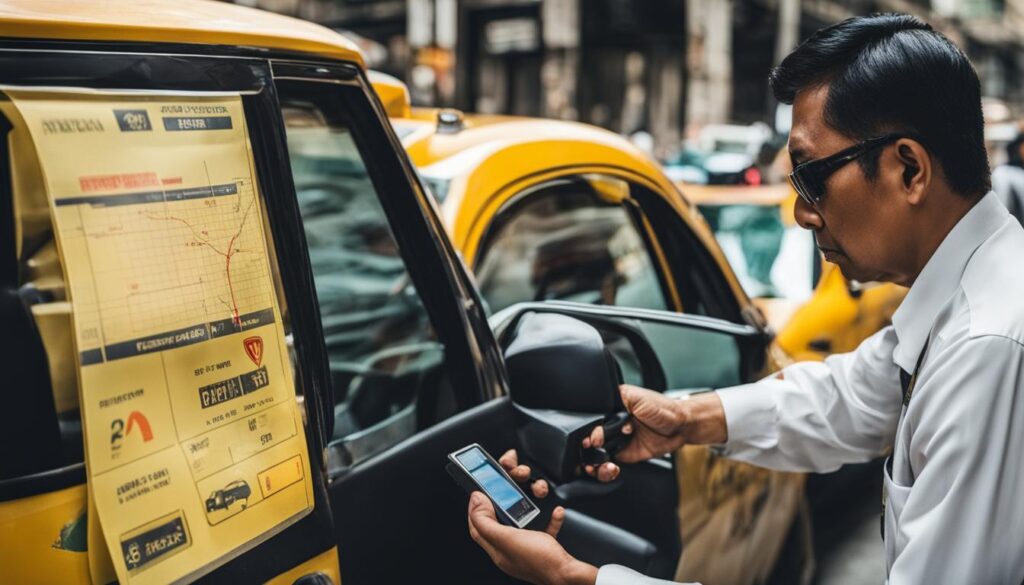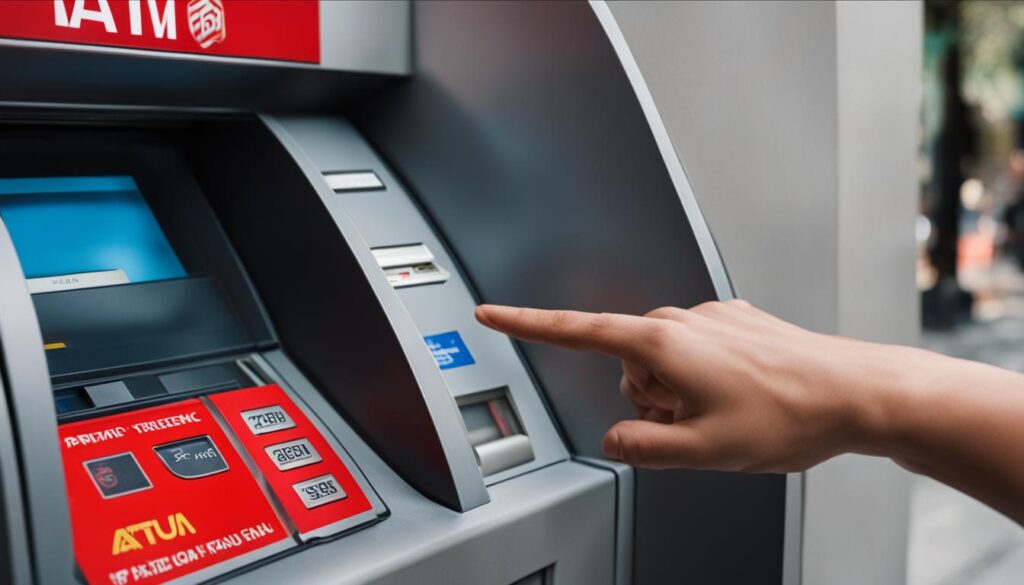What are the most common travel scams and how to avoid them? When traveling, it’s essential to stay mindful of potential scams targeting tourists. Travel scams are prevalent in popular destinations around the world, and scammers come up with inventive ways to trick unsuspecting travelers out of their money. However, with a bit of knowledge and vigilance, you can protect yourself from becoming a victim of travel scams.
In this section, we will discuss the most common travel scams and provide you with effective strategies to avoid falling prey to them. By staying cautious and informed, you can make your travels safer and worry-free.
Pickpocketing and Bag Snatching
When traveling to popular tourist destinations, be aware of the potential risks of pickpocketing and bag snatching. These skilled thieves often work in crowded areas and use covert techniques to steal your valuables.
Stay alert and follow these essential tips to avoid becoming an easy target:
- Avoid carrying large amounts of cash or displaying expensive items.
- Keep your belongings close to your body and use locks and straps on your bags.
- Be wary of distractions such as street performances or someone asking for directions.
- Don’t leave your items unattended, even for a moment.
If you do fall victim to pickpocketing or bag snatching, report the incident to the local authorities and your embassy as soon as possible. Having a backup plan for lost ID cards and money is always a good idea.
Techniques Used by Pickpockets and Bag Snatchers
Pickpockets and bag snatchers use various techniques to distract and deceive their victims. Common methods include:
| Technique | Description |
|---|---|
| The Bump | The thief bumps into you, causing a distraction while they steal your items. |
| The Cut | The thief cuts your bag or pocket to get to your valuables. |
| The Diversion | The thief creates a diversion, such as dropping something, to distract you while they take your items. |
| The Swindle | The thief poses as a tourist or police officer and convinces you to hand over your items. |
“Pickpocketing and bag snatching are common crimes in tourist hotspots. Stay vigilant and keep your belongings secure to reduce the risk of falling victim.”
Currency Exchange Scams
When traveling to a foreign country, it’s essential to have the local currency to pay for goods and services. Unfortunately, currency exchange scams are prevalent and can leave you with significantly less money than you anticipated.
The following are the most common currency exchange scams you need to be aware of:
| Scam | Description |
|---|---|
| High commission rates | Exchange services that advertise ” no commission fees” but charge high exchange rates to make up for it. |
| Bait and switch | Exchange services that show attractive exchange rates but give a lower rate when the transaction is completed. |
| Counterfeit currency | Exchange services that give you counterfeit notes along with some genuine ones, which are hard to spot for a foreigner. |
| Shortchanging | Exchange services that count out the money quickly, making errors in the process or hiding some bills underneath others, hoping that you won’t notice. |
To protect yourself from currency exchange scams:
- Research online or ask trusted locals about reputable exchange services nearby.
- Always count your money carefully before leaving the exchange service.
- Be wary of exchange services that operate out of their car or on the street with no storefront or signage.
- Use a currency converter app to compare the rate given to you with the current market exchange rate.
- Avoid exchanging currencies at tourist hotspots where exchanges rates are known to be unfavorable.
By staying vigilant and following these precautions, you can protect yourself from currency exchange scams and enjoy a hassle-free trip.
Fake Tickets and Tour Packages
As you plan your dream trip, you may come across deals that seem too good to be true. Unfortunately, scammers often prey on travelers by selling fake tickets and tour packages, leaving you with nothing but disappointment and lost money.
To avoid falling victim to these scams, it’s crucial to be aware of the deceptive tactics used by fraudsters. One common tactic is offering deeply discounted tickets or tours that are no longer available through legitimate channels. Alternatively, they may advertise and sell non-existent tours or packages, taking your money and disappearing without a trace.
Protect yourself by researching the travel company before booking and verifying that they are a legitimate business. Be wary of paying upfront without any assurance of the company’s reliability.
If you suspect that you have purchased fake tickets or a non-existent tour package, contact your credit card company or payment processor to dispute the charge and report the fraud.
How to Identify Genuine Offers from Fraudulent Ones
When purchasing tickets or tour packages, look out for the following signs of a scam:
- The offer is significantly cheaper than market prices
- The website or email has poor grammar or misspellings
- The website is not secure, lacking a lock icon in the address bar
- The company requests payment through a wire transfer or prepaid debit card
Keep an eye on these red flags to protect yourself from falling for fake ticket and tour package scams.
Taxi and Transportation Scams
One of the most common travel scams you may encounter involves taxis and other modes of transportation. Dishonest drivers may use various tactics to cheat you out of your money or belongings. To avoid becoming a victim of transportation scams, here are some tips to keep in mind:
Do your research beforehand
Before you travel, find out the typical rates for taxis or other transportation methods in the area you’re visiting. This way, you’ll have an idea of what’s considered fair and won’t be taken advantage of. You can use online resources or ask your hotel receptionist for guidance.
Use licensed taxis
Only use licensed taxis or reputable ride-sharing services. If possible, book a taxi or car service from a reputable company in advance so that you know what to expect in terms of price, safety, and overall experience.
Beware of overcharging
Some taxi drivers may try to overcharge you by taking a longer route or manipulating the meter. Keep an eye on the meter during your ride and use navigation apps to ensure you’re traveling the recommended route.
Don’t share your personal information
Don’t share your personal information or travel itinerary with taxi drivers or other transportation providers. Scammers may use this information to target you for other scams or to steal your identity.
Stay alert
Stay vigilant and aware of your surroundings at all times while using any mode of transportation. Keep your belongings close and don’t leave them unattended. If you encounter any suspicious behavior, end your ride as soon as possible and seek assistance from local authorities.
By following these travel scam awareness tips, you can ensure a safer and more enjoyable journey.
Hotel Scams
When traveling, you might face hotel scams perpetrated by scammers looking to swindle unsuspecting guests. It is important to know the tricks fraudsters use and take necessary measures to protect yourself from hotel-related frauds.
One common hotel scam is booking scams. Scammers create fake third-party booking websites that appear legitimate, stealing your money and personal information. To avoid falling victim to booking scams, it’s best to book directly on the hotel’s official website or a reputable booking platform.
Another hotel scam is fake accommodations where scammers advertise nonexistent rooms or properties to receive payment without providing any service. Always research the hotel you’re booking, read reviews, and check the hotel’s website to ensure its legitimacy.
Furthermore, some scammers pretend to be hotel staff, calling guests to update their personal information or confirm their bookings, and then steal their identity or credit card information. Never give out your personal information over the phone or through emails, and always call the hotel’s front desk directly to confirm any requests or changes to your booking.
Protect yourself from hotel scams by staying vigilant and taking precautions. Familiarize yourself with the hotel’s proper procedures and policies, and always research before you book. If you suspect any suspicious activity, report it to the hotel staff and local authorities immediately. By being aware and proactive, you can enjoy a safe and hassle-free stay.
ATM and Credit Card Fraud
Using ATMs and credit cards while traveling can be convenient, but it also poses risks of fraud and identity theft. Here are some valuable tips to help you minimize the chances of becoming a victim:
- Use ATMs located in trusted areas, such as banks or hotels.
- Avoid using public ATMs that can be easily tampered with.
- Check the card slot and PIN pad for suspicious devices that may be used to steal your card information.
- Cover your PIN with your hand to prevent peering eyes from seeing it.
- Regularly check your account statements to detect any unauthorized transactions early.
- Notify your credit card company and bank immediately if you suspect any fraud or theft.
When using credit cards, be wary of unsecured websites and Wi-Fi hotspots that may compromise your sensitive information. Minimize the number of cards you carry and keep them in a secure place, such as a hotel safe. Be mindful of your surroundings and suspicious behavior from others in public areas where credit card details may be accessible, such as restaurants and stores.
Remember, prevention is key to avoiding ATM and credit card fraud while traveling.
Fake Police and Tourist Assistance Scams
It’s not uncommon to encounter scammers who pretend to be police officers or sympathetic locals willing to offer assistance to unsuspecting tourists. These scams can take different forms, from requests to check your passport or visa to fabricated reports of violence or criminal activity in the area.
To protect yourself from falling victim to fake police scams and tourist assistance scams, keep the following travel scam tips in mind:
- Verify the identity of the person claiming to be a police officer or an official representative: Ask for identification or a badge, and verify it with the local authorities if in doubt. Real law enforcement officers would not ask you to hand over money or personal information.
- Don’t give away your personal information indiscriminately: Scammers may pretend to offer help with lost or stolen documents or arrange transportation to your hotel. Keep your passport, visa, credit cards, and other sensitive documents safe and secure.
- Stay vigilant and avoid suspicious situations: Refuse any offers that seem too good to be true, especially if made by strangers on the street. Stick to reputable tour operators and transportation providers and stay in well-lit and populated areas.
Remember, genuine authority figures would never ask you to hand over money or personal information in exchange for assistance. Be cautious and alert to ensure a safe and hassle-free trip!
Wi-Fi and Internet Scams
Using public Wi-Fi hotspots or hotel networks can be a risky proposition when it comes to your online security. Scammers can easily create fake Wi-Fi networks with legitimate-sounding names to trick unsuspecting travelers into connecting. Once connected, they can access your personal information, login details, and passwords to steal your identity or money.
Protect yourself against Wi-Fi scams by following these simple tips:
- Disable automatic connection to Wi-Fi networks and look for legitimate network names before connecting
- Use a virtual private network (VPN) to encrypt your internet traffic and prevent hackers from intercepting your data
- Never log in to sensitive accounts while using public Wi-Fi, including online banking and email
- Avoid downloading any attachments or clicking on links from untrusted sources
In addition to Wi-Fi scams, travelers should be wary of various internet-related scams, including phishing attempts, fake websites, and social media scams. Be sure to only provide personal information and payment details on secure, trusted websites and keep your antivirus software up-to-date.
“Don’t let your guard down when it comes to using the internet while traveling. Stay vigilant and take the necessary precautions to protect yourself from scams and cyber threats.”
By practicing safe online habits and staying informed about the latest internet scams, you can help prevent becoming a victim of online fraud and enjoy a more secure travel experience.
Top Wi-Fi and Internet Scams to Avoid
Some of the most common internet-related scams to be aware of include:
| Scam Type | Description |
|---|---|
| Phishing Emails | Scammers will send fake emails, posing as reputable companies or organizations and requesting personal information or money. |
| Fake Websites | Scammers will create websites that look identical to legitimate sites, in order to trick people into entering personal information or payment details. |
| Social Media Scams | Scammers may create fake accounts or impersonate other people on social media to gain personal information or money. |
Conclusion
Travel scams can ruin your trip and cause you to lose time, money, and valuable possessions. However, with the right knowledge and preparation, you can avoid falling victim to these fraudulent practices.
To recap, we have covered the most common travel scams, including pickpocketing, currency exchange scams, fake tickets and tour packages, taxi and transportation scams, hotel scams, ATM and credit card fraud, fake police and tourist assistance scams, and Wi-Fi and internet scams. We have also provided you with effective strategies to prevent these scams from happening and protect your personal information and belongings.
As you embark on your next travel adventure, remember to stay alert and remain informed about the latest scams in your destination. By implementing the avoidance techniques mentioned in this article, you can ensure a safe and enjoyable journey free of scams and worries.

















































